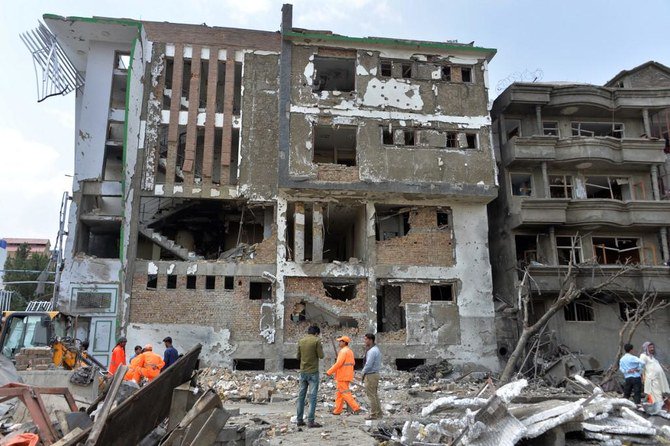34 killed as terrorist bomb blows up bus in Afghanistan

At least 34 people, mostly women and children, were killed and 17 injured on Wednesday in Afghanistan’s second major terrorist attack in less than a week.
A roadside bomb exploded under a bus packed with passengers traveling on the main highway in Farah province between Kandahar and Herat.
“It was dark, and the bus hit a mine,” said Ali Juma, an injured passenger being treated in hospital in Herat. “There were many casualties, dead and wounded people.”
The Taliban refused to say whether they had carried out the attack. Spokesman Qari Mohammad Yousuf said they would investigate the bombing and punish those responsible.
Nevertheless, authorities blamed the Islamist militant group, and said security forces were the intended target. Interior Ministry spokesman Nasrat Rahim said it was a “barbaric act by the terrorists.”
The Taliban, who control about half of Afghanistan, have pledged to reduce civilian casualties, but violence has continued.
At least 20 people were killed on Sunday, the first day of campaigning for September’s presidential election, when a suicide bomber and gunmen attacked the Kabul office of President Ashraf Ghani’s vice-presidential running mate, Amrullah Saleh.
The latest violence comes amid a US push for peace with the Taliban that appears to be making progress after months of deadlock.
US peace envoy Zalmay Khalilzad left Afghanistan for Pakistan on Wednesday before heading to Doha for new talks with the Taliban. “If the Taliban do their part, we will do ours, and conclude the agreement we have been working on,” he said.
The Afghan Peace Ministry said the government had formed a negotiating team for potential talks in Oslo in August. That is significant because until now the Taliban have refused to negotiate directly with Ghani’s government, which they say is a Western puppet.
However, the drive to end the 18-year war is causing widespread concern among Afghans that the Taliban will return to a role in government.
Women’s rights groups in particular worry about the fate of women and girls in the event of a return of the Taliban, who banned girls’ education and restricted women’s rights to work outside the home.
Last week the Taliban said talks with the Afghan government would come only after a deal had been struck with the US on the departure of its forces. Many Afghans fear a US troop withdrawal will weaken their bargaining power with the militants.
At the peak of the conflict nearly a decade ago, the US had 100,000 troops in Afghanistan leading a 130,000-strong international force to prevent the Taliban from returning to power. More than 3,400 foreign troops died there.
The UN says more than 33,000 civilians have died since 2009, including 1,300 in the first six months of this year.
Tens of thousands of members of the Afghan security forces and an unknown number of insurgents have also been killed.
